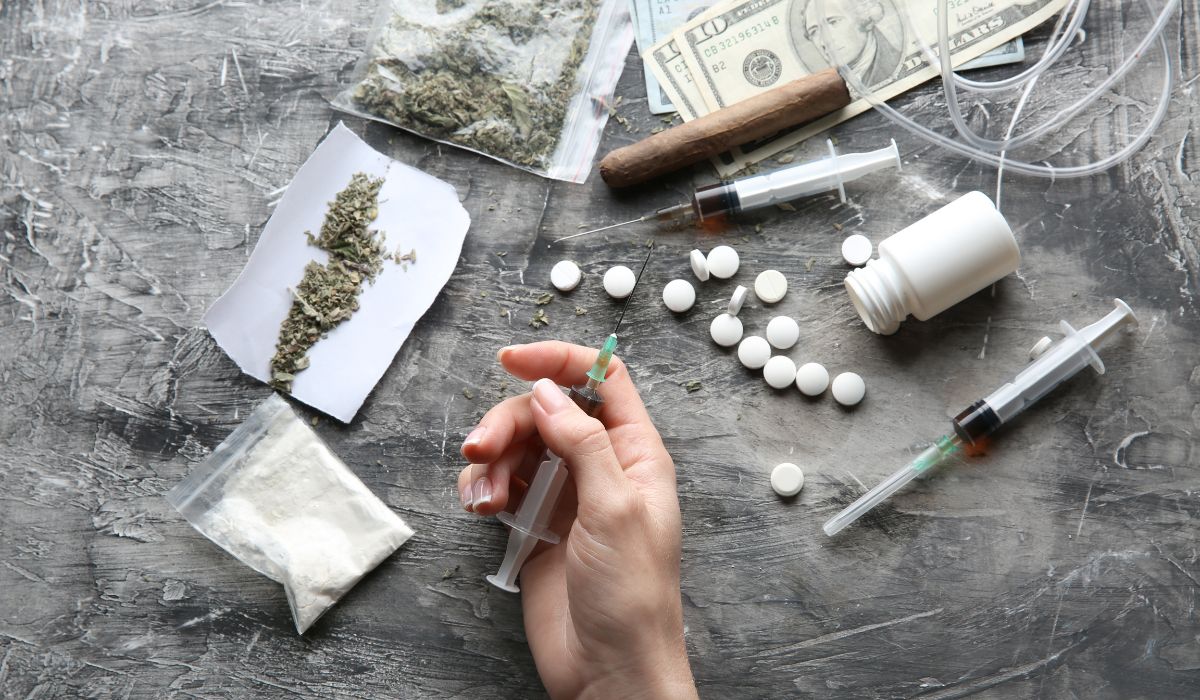Understanding the Question: Is Coke an Amphetamine?
Many people ask, “is coke an amphetamine?” The short answer is no. Cocaine, often called “coke,” comes from the coca plant. Amphetamines, like Adderall or dextroamphetamine, are man-made stimulant medications. While both affect the brain and central nervous system, they are not the same drug.

What Is Cocaine?
Cocaine is a stimulant made from the coca leaf. In its powder or free base form, it creates quick euphoria, high alertness, and changes in mood. Cocaine affects the synapse by blocking the reuptake of the neurotransmitter dopamine. This floods the nucleus accumbens and striatum, key parts of the brain’s reward system.
Cocaine can be taken through different routes of administration like snorting, smoking “crystal” or “ice,” or injecting. Each method changes how fast it reaches the circulatory system and the neurons in the nervous system.
What Are Amphetamines?
Amphetamine drugs are synthetic stimulants. They include:
-
Adderall (mixed amphetamine salts)
-
Dextroamphetamine
-
Lisdexamfetamine (Vyvanse)
-
Methylphenidate (though technically not an amphetamine, but often compared)
Doctors often prescribe them for attention deficit hyperactivity disorder (ADHD) and sometimes narcolepsy. These medications change neurotransmission by increasing dopamine and norepinephrine release.

Similarities Between Coke and Amphetamines
Both cocaine and amphetamines:
-
Increase alertness, motivation, and concentration
-
Speed up heart rate and blood pressure
-
Cause anxiety, insomnia, or irritability
-
Boost dopamine in the dopaminergic pathways of the brain
Both can also lead to substance abuse, mental health disorders, and serious health risks like hypertension, tachycardia, or even myocardial infarction (heart attack).
Key Differences Between Coke and Amphetamines
-
Source: Coke is plant-based (from coca). Amphetamines are lab-made.
-
Duration: Coke wears off quickly. Amphetamines last longer due to slower metabolism.
-
Medical Use: Amphetamines are approved by the Food and Drug Administration (FDA) for ADHD and other conditions. Cocaine has very limited use as a medicine in some surgeries but is mostly illegal.
-
Mechanism: Coke blocks dopamine reuptake. Amphetamines cause reverse transport of dopamine through the monoamine transporter.
How Coke Affects the Body
Cocaine strongly impacts the central nervous system and circulatory system. Effects include:
-
Euphoria and rush of pleasure
-
Increased heart rate and risk of heart failure
-
Paranoia, stimulant psychosis, or schizophrenia-like symptoms
-
Changes in appetite, leading to weight loss or obesity risks later
-
Seizures, coma, or neurotoxicity in high doses
-
Problems with breathing and lung health if smoked
Cocaine also raises protein kinase A, CREB, and other transcription factors that affect gene expression and long-term neuroplasticity.
How Amphetamines Affect the Body
Amphetamines act on the monoamine neurotransmitters like dopamine, serotonin, and norepinephrine. Effects may include:
-
Better attention and cognition in ADHD patients
-
Increased arousal and endurance
-
Side effects like nausea, fatigue, sleep problems, or anxiety
-
Risk of stimulant psychosis, psychosis, or impulsivity at high doses
-
Long-term changes in dendritic spines, synaptic plasticity, and memory
Some amphetamines, like lisdexamfetamine, are designed with delayed activation to reduce abuse.
Risks of Substance Abuse
Both cocaine and amphetamines carry risks. Drug withdrawal may include:
-
Depression
-
Insomnia or oversleeping
-
Anxiety
-
Loss of appetite or overeating
-
Irritability and mood swings
-
Strong cravings that lead to relapse
Chronic abuse can damage the cerebral cortex, ventral tegmental area, and cause long-term mental disorders. It can also harm the cardiovascular system, leading to rhabdomyolysis, seizures, or even death.
Mental Health Connections
Cocaine and amphetamine misuse is linked to:
-
Anxiety and depression
-
Psychiatry diagnoses like schizophrenia, bipolar disorder, or other mental states
-
Changes in emotions, behavior, and psychology
-
Increased risk of violence, impulsivity, and irritability
Many patients benefit from mental health treatment such as therapy, antidepressant medication, or benzodiazepines (for withdrawal).
The Science Behind Stimulants
Modern neuroscience and psychopharmacology use laboratory research, animal models (like rat and mouse studies), and systematic reviews on databases like PubMed and the National Center for Biotechnology Information (NCBI).
Findings show stimulants change signal transduction, protein kinase activity, cyclic adenosine monophosphate (cAMP), and neuroplasticity. They also affect NMDA receptors, glutamate receptors, and serotonin transporters.
Treatment and Recovery
Patients facing stimulant abuse may need:
-
Therapy (such as cognitive-behavioral therapy or dialectical behavior therapy)
-
Medical help from a physician or psychiatry team
-
Support for mental health, motivation, and quality of life
-
Monitoring for hepatitis, hepatitis C, or other health issues from unsafe use
-
Medications like antidepressants or opioid blockers if mixed use is present
Recovery can improve cognition, memory, and overall health. With proper care, patients can adapt and reduce risks of relapse.
Why This Information Matters
Knowing the difference between coke and amphetamines is key. It helps with education, prevention, and guiding people toward mental health treatment instead of continued substance abuse. Science, pharmacology, and behavioral neuroscience all agree: while they share some effects, cocaine is not an amphetamine.

Seeking Treatment? We Can Help!
We work with PPO Out of Network Health Insurance Policies
If you or a loved one are struggling with mental health challenges or substance abuse, reach out to Mountain Sky Recovery today. Our team of compassionate professionals is here to support your journey towards lasting well-being. Give us a call at 951-498-5412. Visit SAMHSA for more information.



